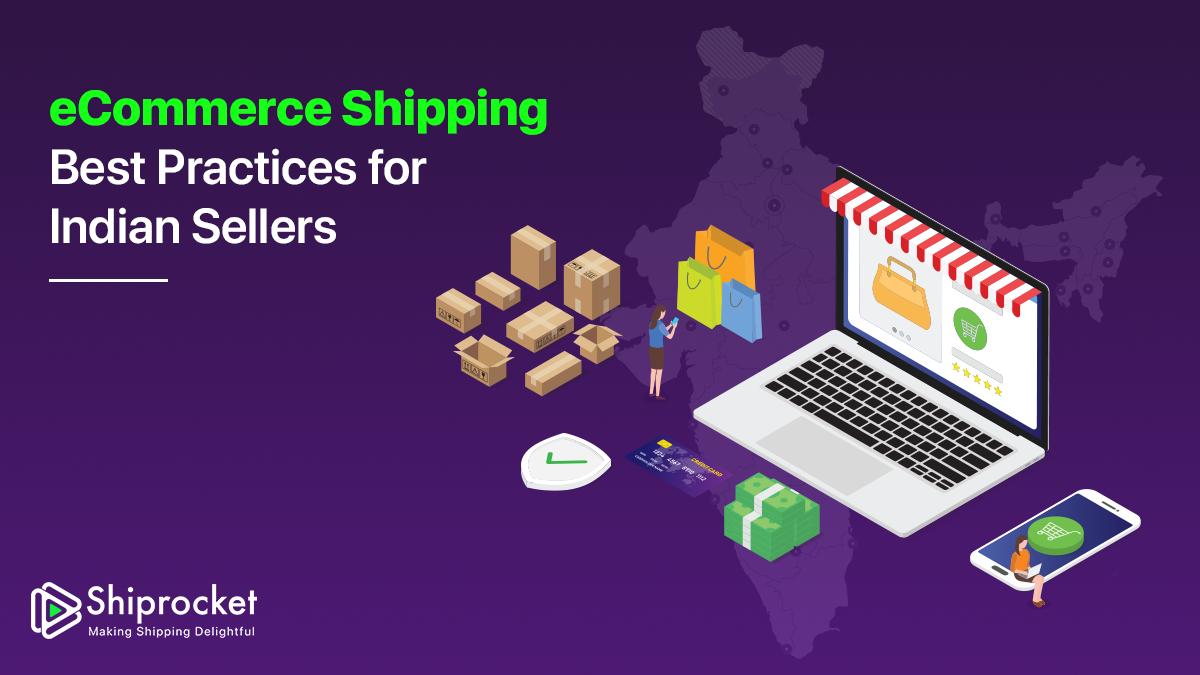5 Inventory Management Software For SMBs [2025]
Inventory management is a structured process of storing, ordering and controlling a company’s products. It can be one of the biggest hassles for an eCommerce seller, yet it is vital for the growth of your business. Whether you have a small or large inventory, inventory management is an integral part of any business. The lack of inventory management software can make you lose a customer due to low inventory levels or lose your money due to piled up slow-moving stock.
However, navigating through multiple inventory management software to find the best one can be a tedious process. To help you save your time and resources, we’ve gone ahead and compiled the best inventory management software for your small business.
Read on to find out which ones make it to the top 5!

Benefits of Using Inventory Management Software
Managing inventory can be a headache! But with the right software, it becomes easy. Here are a few ways inventory management software can make your life easier and your business operations smoother:
- Better Demand Planning
If you’re in manufacturing, you know how frustrating it is to run out of parts mid-production. Inventory management software helps you stay on top of what you have and what you’ll need down the line. It lets you forecast demand so you can order materials in advance and avoid those annoying delays. It prevents scrambling to find the missing components; everything’s right where it should be when you need it.
- Stronger Quality Control
When something goes wrong with a product, you need to act fast. Inventory management software keeps track of every item’s journey, making tracking your problems back to their source easier. If there’s a recall, you can quickly pinpoint affected products and stop them from reaching customers. It serves as a safety net for your quality control team.
- Cost Savings
Who doesn’t love saving money? Inventory management software helps you cut costs in smart ways. For example, it can show you trends in your inventory, like which items are sitting around too long or how many products you’re losing to spoilage. If you’re storing perishable goods, it can even help you reduce waste by flagging items that aren’t stored properly. Plus, it gives you a clear picture of your warehouse space, so you don’t have to pay people to check what’s available manually.
- Higher Efficiency
Say goodbye to clunky paper forms and endless searches for products in the warehouse. Modern inventory software works on mobile devices so that you can scan items right from your phone. It also helps you find products faster, so orders are shipped out on time. And here’s a bonus: your sales team can check stock levels themselves without the help of warehouse staff.
- Happier Customers
There’s nothing worse than telling a customer their order can’t be fulfilled because they’re out of stock. Inventory management software gives you real-time updates on what’s available, so your website always shows accurate stock levels. That means fewer disappointed customers and more repeat business. Happier customers simply ensure a wealthier business.
List of Top 5 Inventory Management Software for SMBs
The following industry-leading inventory management software options will help you decide on what fits your business operations the best:
1. Zoho Inventory
If you’re planning to streamline your inventory, Zoho is the perfect option for you. It can help you manage your inventory on different sales channels, all from a single platform. It is a cloud-based platform that also provides you detailed insights about your inventory. With Zoho, you can grow your business by keeping track of every unit that you sell. Zoho offers:
- Offline and online order management
- Warehousing
- Multiple shipping integrations
- CRM integration
- End to end tracking
2. NetSuite
Another most-used inventory management software today is NetSuite, a comprehensive cloud-based Enterprise Resource Planning (ERP) solution. More than 8210 companies worldwide have incorporated NetSuite as an ERP tool in 2025. SMBs can use this advanced software’s capabilities to get real-time visibility into inventory levels and automate replenishment processes. It integrates smoothly with different business functions, including accounting and customer relationship management, to suit your business needs.
NetSuite is highly scalable and combines many robust features to make the process of managing stock flawless. Some of these include:
- Multi-location Fulfillment – Efficiently manage inventory across multiple warehouses.
- Inventory Auditing – Provides complete stock history and transaction tracking.
- Stock Tracking – Offers real-time inventory updates and forecasting.
- Order Management – Automates order fulfillment and ensures timely deliveries.
- Warehouse Management – Optimises warehouse operations with smart stock allocation.
Integration: NetSuite integrates with many third-party applications, including eCommerce platforms, CRM tools, and shipping solutions. It supports integrations with Shopify, Magento, Amazon, and multiple accounting software via open APIs.
3. Cin7 Core
It can be challenging to manage your stock across multiple sales channels, including online platforms and brick-and-mortar stores. Cin7 Core is here to help SMBs with centralised control over the stock and offers other robust features like real-time stock tracking, order management, and warehouse management. According to the company’s recent data, Cin7 Core users usually see success metrics like improved operational efficiency by up to 95%.
A few commendable capabilities of the software include:
- Direct EDI (Electronic Data Interchange) – Automates B2B transactions with suppliers and retailers.
- KPI Tracking – Monitors performance metrics related to inventory, sales, and fulfillment.
- Data Mining – Extracts meaningful insights to optimise stock levels and demand planning.
- Custom Dashboard – Allows users to personalise their interface for quick decision-making.
Integration: Cin7 integrates with various online sales channels, POS systems, and third-party logistics providers. It is compatible with Shopify, WooCommerce, Magento, eBay, Amazon, and other eCommerce platforms.
4. Fishbowl Inventory
Fishbowl is yet another software that makes it to the list of our top 5 inventory management software. Not just in India, but Fishbowl is used all across the world due to its numerous qualities. It is ideal for small and mid-sized businesses and offers advanced features to track your inventory. Fishbowl eases your task of asset management for your business by automating quoting, ordering and purchasing process. With its thorough knowledge center, you can easily use the platform and efficiently manage your inventory.
Here’s what you can look out for in Fishbowl inventory management software:
- Real-time tracking
- Shipping integration
- Barcode scanner setup
- Merchant services
- Multi-channel inventory management
Integration: Fishbowl integrates with QuickBooks, Shopify, Amazon, WooCommerce, and other eCommerce and accounting platforms, rendering it a great choice for businesses that need a comprehensive solution.
5. QuickBooks Commerce
Earlier known as TradeGecko, QuickBooks Commerce is another viable inventory management software option for SMBs. QuickBooks holds a large market share among small businesses, with most of them using it for accounting needs, including eCommerce management.
QuickBooks can automatically fetch your orders and payouts from your online sales channels upon integration, bringing everything in one place for easy management.
The main Features of QuickBooks include:
- Multi-channel Stock Management – Syncs inventory across multiple sales platforms.
- Order & Supplier Management – Automates order processing and supplier coordination.
- B2B eCommerce Portal – Allows wholesale customers to place orders directly.
- Product Bundling – Enables sellers to group products and sell them as bundles.
- Sales Analytics – Provides insights into sales trends, order history, and customer behaviour.
Integration: QuickBooks Commerce integrates with Shopify, Amazon, eBay, WooCommerce, Square, and various accounting software, making it a credible solution for SMBs seeking to streamline their inventory operations.
Managing Inventory Efficiently with Shiprocket Fulfillment
Shiprocket Fulfillment streamlines your operations with its robust inventory management system specifically tailored for SMBs. You can easily organise and manage your stock in one place, reduce operational complexities and costs, and focus on scaling your business with our advanced inventory handling processes.
Our end-to-end shipping and fulfillment services offer features including:
- Omnichannel Inventory Sync: Connect and manage inventory from existing sales channels, simplifying selling across various marketplaces.
- Live Tracking: Monitor stock levels in real-time, ensuring you have up-to-date information to prevent stockouts or overstocking.
- Bulk Updates: Easily edit stock individually or use the import/export feature to update products in bulk, saving time and reducing manual errors.
- Centralised Dashboard: Manage all orders from different eCommerce platforms in one place, eliminating the need to log in to multiple portals and thus simplify order fulfillment.
Conclusion
Now that you have the top five inventory management software right in front of you, pick the one that fits your business requirements. Inventory management can be one of the most significant factors responsible for the growth of your business. So if you’re not doing it yet, you’re probably losing your customers without even knowing about it. Check our Shiprocket Fulfillment to manage your inventory efficiently and scale your business.





